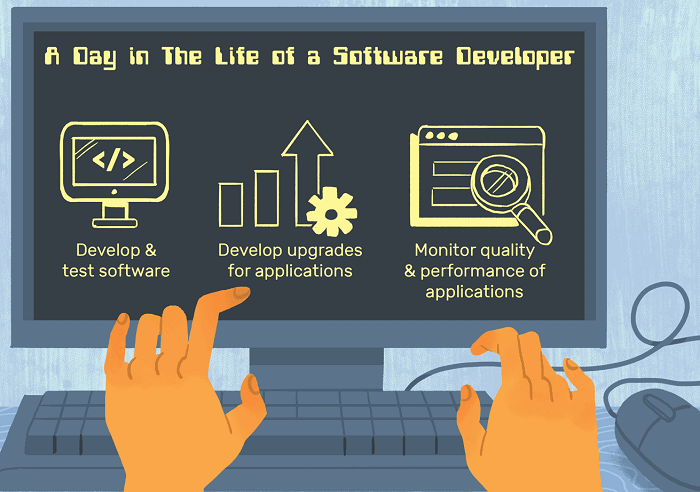In the rapidly evolving landscape of technology, the demand for skilled software engineers continues to surge. Aspiring professionals seeking to break into the industry often find themselves navigating a maze of questions: Where do I start? What skills do I need? How do I land that crucial first job? If you’re one of these eager individuals, fret not! This comprehensive guide is tailored just for you. From essential skills to job-hunting strategies, we’ll cover everything you need to know to kickstart your journey as an entry-level software engineer.
Understanding the Role of an Entry-Level Software Engineer

Before delving into the specifics, let’s clarify the role of an entry-level software engineer. At this stage, you’ll typically work under the guidance of experienced professionals, contributing to various aspects of software development projects. Your tasks may include coding, debugging, testing, and collaborating with team members to deliver high-quality software solutions. While you may lack extensive experience, your enthusiasm, willingness to learn, and foundational knowledge are invaluable assets in this stage of your career.
Essential Skills for Entry-Level Software Engineers
- Programming Proficiency
- Mastering one or more programming languages is fundamental. Popular choices include Java, Python, JavaScript, C++, and Ruby.
- Understand the principles of object-oriented programming, data structures, and algorithms.
- Familiarize yourself with version control systems like Git, crucial for collaborative development workflows.
- Problem-Solving Abilities
- Software engineering revolves around solving complex problems. Sharpen your analytical skills and cultivate a problem-solving mindset.
- Practice solving algorithmic challenges on platforms like LeetCode, HackerRank, or CodeSignal to enhance your problem-solving prowess.
- Understanding of Software Development Lifecycle
- Gain insights into the software development lifecycle (SDLC) phases, including planning, analysis, design, implementation, testing, deployment, and maintenance.
- Familiarize yourself with Agile methodologies such as Scrum or Kanban, commonly used in modern software development environments.
- Continuous Learning
- Embrace a growth mindset and stay updated with emerging technologies, frameworks, and best practices.
- Leverage online resources, tutorials, courses, and community forums to expand your knowledge base continually.
- Communication and Collaboration
- Effective communication is essential for conveying ideas, discussing solutions, and collaborating with team members.
- Hone your communication skills, both verbal and written, to articulate technical concepts clearly and concisely.
Educational Paths for Aspiring Software Engineers
While formal education isn’t always a prerequisite for entering the field of software engineering, pursuing relevant degrees or certifications can provide a solid foundation and enhance your credibility in the job market. Here are some educational paths to consider:
- Bachelor’s Degree in Computer Science or Related Field
- A traditional route, offering comprehensive education in computer science fundamentals.
- Provides structured learning, access to experienced professors, and opportunities for hands-on projects and internships.
- Coding Bootcamps
- Intensive, short-term programs focusing on practical skills and job readiness.
- Ideal for individuals seeking a more accelerated path into the tech industry.
- Bootcamps often offer networking opportunities and job placement assistance.
- Online Courses and Tutorials
- Platforms like Coursera, Udemy, and edX offer a plethora of courses covering various programming languages, frameworks, and specialized topics.
- Flexible and accessible, allowing you to learn at your own pace from anywhere in the world.
- Self-Study and Personal Projects
- Many successful software engineers are self-taught, relying on online resources, books, and hands-on projects to acquire skills.
- Building a portfolio of personal projects demonstrates your abilities and passion for coding to potential employers.
Building Your Portfolio

As an entry-level software engineer, your portfolio plays a crucial role in showcasing your skills and experience to prospective employers. Here’s how to build a compelling portfolio:
- Personal Projects
- Undertake coding projects that align with your interests and career goals.
- Focus on creating practical, functioning applications or contributing to open-source projects.
- Document your projects on platforms like GitHub, providing clear descriptions, code samples, and demonstrations.
- Internships and Work Experience
- Seek internships or part-time positions to gain real-world experience and expand your professional network.
- Even non-software engineering roles in tech companies can provide valuable insights into industry practices and culture.
- Certifications and Achievements
- Earn certifications in relevant technologies or frameworks to validate your skills.
- Highlight any academic achievements, awards, or scholarships that demonstrate your dedication and expertise.
Job-Hunting Strategies
Now that you’ve honed your skills and built an impressive portfolio, it’s time to embark on your job search journey. Here are some strategies to help you land your first job as an entry-level software engineer:
- Networking
- Attend industry events, tech meetups, and networking sessions to connect with professionals in the field.
- Utilize online platforms like LinkedIn to expand your network and seek mentorship opportunities.
- Job Boards and Career Websites
- Regularly browse job boards such as Indeed, Glassdoor, and LinkedIn Jobs for entry-level software engineering positions.
- Tailor your resume and cover letter to highlight relevant skills and experiences for each application.
- Company Research
- Research prospective employers to understand their culture, values, and tech stack.
- Customize your job applications to demonstrate how your skills align with the company’s needs and objectives.
- Interview Preparation
- Practice coding challenges, algorithms, and technical interviews using platforms like LeetCode and Pramp.
- Be prepared to discuss your projects, problem-solving approach, and past experiences during behavioral interviews.
Embarking on a career as an entry-level software engineer can be both challenging and rewarding. By acquiring essential skills, building a robust portfolio, and adopting effective job-hunting strategies, you’ll position yourself for success in this dynamic and ever-evolving industry. Remember to stay curious, persistent, and adaptable as you navigate your journey towards becoming a proficient software engineer. With dedication and determination, the possibilities are limitless in the exciting world of technology. Best of luck on your path to success!


